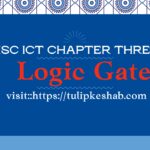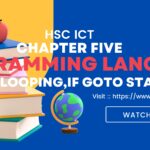**Education for All**
Education is one of the most powerful tools that empower individuals to achieve success in life. It not only helps people gain knowledge but also instills confidence, making them capable of overcoming life’s challenges. Education is the foundation upon which personal and professional growth is built. It opens multiple doors of opportunities, enabling individuals to explore better career prospects and improve their quality of life. By acquiring knowledge, people become more self-sufficient and independent, allowing them to contribute positively to society.
**Importance of Education**
Education plays a crucial role in shaping an individual’s personality, behavior, and thinking abilities. It fosters critical thinking, problem-solving skills, and creativity, which are essential in today’s rapidly changing world. A well-educated society leads to a nation’s development by promoting economic stability, technological advancements, and improved living standards. Education not only benefits individuals but also contributes to the progress of the entire country.
Moreover, education is a powerful tool to eliminate social inequalities and discrimination. It promotes equality by providing knowledge and skills to everyone, regardless of gender, caste, or economic background. In many rural areas, people lack awareness about the importance of education. To address this issue, various awareness programs have been launched by governments and non-governmental organizations (NGOs) to enhance the value of education in remote regions. These programs aim to encourage parents to send their children to school and reduce illiteracy rates.
**Modern Educational Methods**
In today’s technological era, the methods of education have changed significantly. Traditional classroom learning is no longer the only way to acquire knowledge. There are now various modern methods of education, such as online learning, distance education, and skill-based training. These advancements have made education more accessible to people who cannot attend regular classes due to financial constraints or job commitments.
Distance learning programs have become an excellent option for those who wish to continue their teaching while working. After completing high school, students can enroll in distance learning courses from reputed universities at an affordable cost. Many institutions offer flexible study schedules, allowing individuals to learn at their own pace. This system has opened new opportunities for those who were previously unable to pursue higher education due to financial or personal reasons.
Furthermore, there are many small training institutes that provide skill-based education in specific fields such as information technology, healthcare, business management, and digital marketing. These training programs help individuals enhance their skills and secure better job opportunities. The rise of e-learning platforms has also revolutionized education, making it easier for people to gain knowledge from anywhere in the world. Online courses, video lectures, and interactive sessions have made learning more engaging and efficient.
**Education and Economic Growth**
Education has a direct impact on a country’s economic growth and development. A well-educated workforce leads to increased productivity, innovation, and technological progress. Countries with high literacy rates tend to have better economic stability and improved living conditions. Educated individuals contribute to the economy by working in various sectors, starting businesses, and developing new technologies.
Additionally, education helps reduce unemployment and poverty by providing individuals with better job opportunities. People with higher educational qualifications are more likely to secure well-paying jobs, leading to a better standard of living. Governments across the world are focusing on improving knowledge systems to create a knowledgeable and skilled workforce capable of driving economic growth.
**Conclusion**
Education is a fundamental right that should be accessible to everyone, regardless of their background or financial status. It plays a vital role in shaping an individual’s future and the progress of a nation. With advancements in technology, education has become more flexible and accessible, allowing people to learn through various modern methods such as online courses and distance learning programs.
Governments and organizations should continue to promote education, especially in rural and underprivileged areas, to ensure that every child gets an opportunity to learn and grow. By investing in teaching, societies can eliminate poverty, create equal opportunities, and drive overall development. Learning for everyone is not just a necessity but a powerful means to build a better, more prosperous world.








